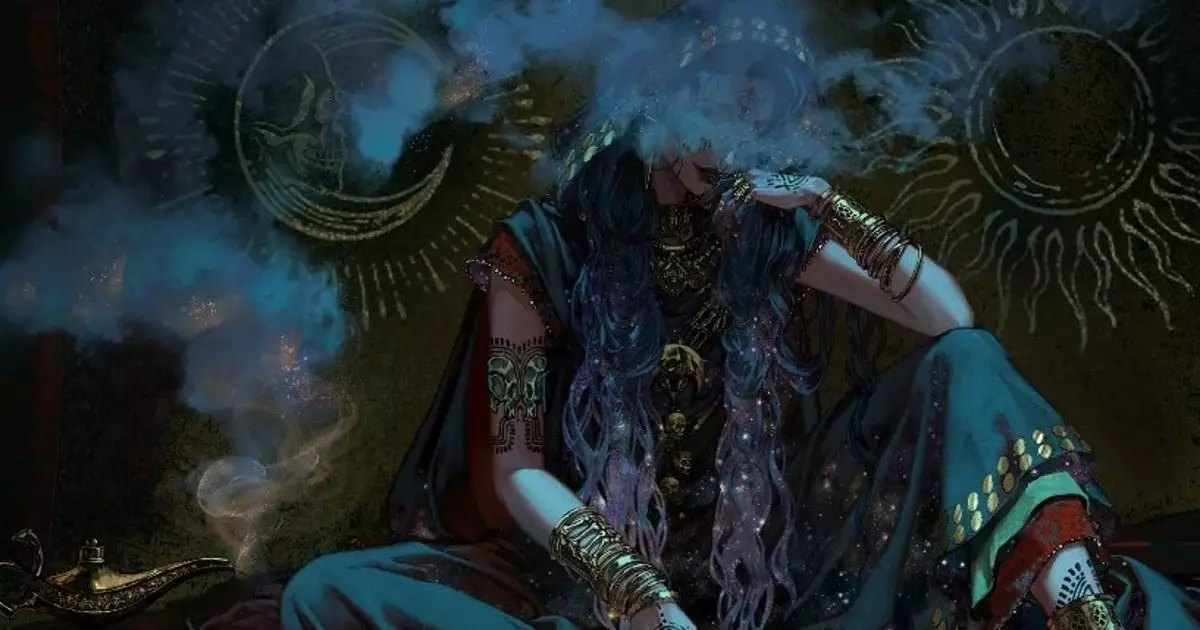Sultan’s Game is an immersive journey into a rich, albeit twisted, world of strategy and storytelling. Even as I find myself grappling with its numerous intricacies, there’s something undeniably compelling about this game’s design and narrative structure. My initial experience with the demo left me feeling both captivated and confounded—a duality that makes me consider balking at it in frustration yet beckons me to dive deeper. This perplexing blend of human emotion, stark morality, and a unique card-based mechanic forms a narrative fabric that demands attention. Within this article, I aim to disassemble the elements that render Sultan’s Game a significant addition to the narrative-driven genre while also addressing its imperfections.
One cannot deny the aesthetic appeal of Sultan’s Game. The visuals dance between vibrant color schemes reminiscent of Hades and the otherworldly allure of traditional artwork. Iconic in their execution, the graphics evoke a sense of wonder and curiosity that forces you to linger, even in the moments of dark introspection. Coupled with an atmospheric soundtrack that echoes the tension and mysteries of this fantastical landscape, the game initiates players into an emotional realm that is as vivid as it is bizarre.
The visual allure is immediate, but it is the subtlety of its narrative artistry that provides profound insights into the motivations of the characters. Each figure and location is crafted with a specific intent and depth, presenting the player with a kaleidoscope of choices and their corresponding moral implications.
At the heart of Sultan’s Game lies a deeply intricate card system, which serves as both a mechanic for gameplay and a symbolic representation of power dynamics. As players control the Sultan—a figure of excess and dissatisfaction—they are thrust into a world governed by four types of cards: carnality, bloodshed, conquest, and extravagance. Each card demands a price paid with the very lives and loyalties of the court’s characters, creating a dissonance between utilitarian efficiency and emotional gravity.
Interestingly, the dynamic parallels that of resource management games like Frostpunk, where lives become expendable resources. However, Sultan’s Game takes this concept further by embedding narratives that allow players to develop a relationship with these characters before they become sacrifices in response to the Sultan’s whims. This deliberate layering of narrative makes the moral decisions more impactful, as each choice can lead to devastating consequences not just for the characters but also for the player’s standing within the game world.
Narrative Worker Placement: The Depth of Choices
Transitioning from playing as the Sultan to managing one’s character creates a significant pivot in gameplay. Each player begins with their own character and entourage, transferring the responsibility of navigating political intrigue, resolving card challenges, and building reputational strength. This innovative strategy results in a narrative worker placement system that combines time management with character development, offering unique pathways and narrative threads that define the player’s experience.
One’s journey begins with each card offering goals to achieve within a set timeframe—seven days to be precise—adding a layer of tension that keeps the gameplay engaging. The player’s choices extend beyond fulfilling the demands of the Sultan’s cards; they involve climbing through social ladders, forging alliances, and undertaking morally dubious actions that significantly impact story progression. The interplay of gaining influence while maintaining a reputation creates a multifaceted gameplay experience that lures players into exploring new strategies and tactics.
As I journey through Sultan’s Game, I acknowledge its imperfections and the disorienting complexities it embodies. Yet, it is precisely these qualities that capture the imagination. The seductive allure of the cards and the intricate web of choices create an atmosphere filled with intrigue and dread. While the game may seem overwhelming at times, it invites players to embrace uncertainty and navigate the murky waters of morality and ambition.
There lies a resilience in Sultan’s Game, a pulsing vibrancy in its dark themes, marking it as an innovative entry in the realm of narrative-centered gaming. As I continue to familiarize myself with its enigmatic depths, I emerge more intrigued, eager to uncover the layers that lie beneath the surface of its beautifully chaotic world. Ultimately, Sultan’s Game presents not only a challenge but also an opportunity to reflect on the complex nature of power, choice, and consequence—one that tugs at the core of human experience.


Leave a Reply